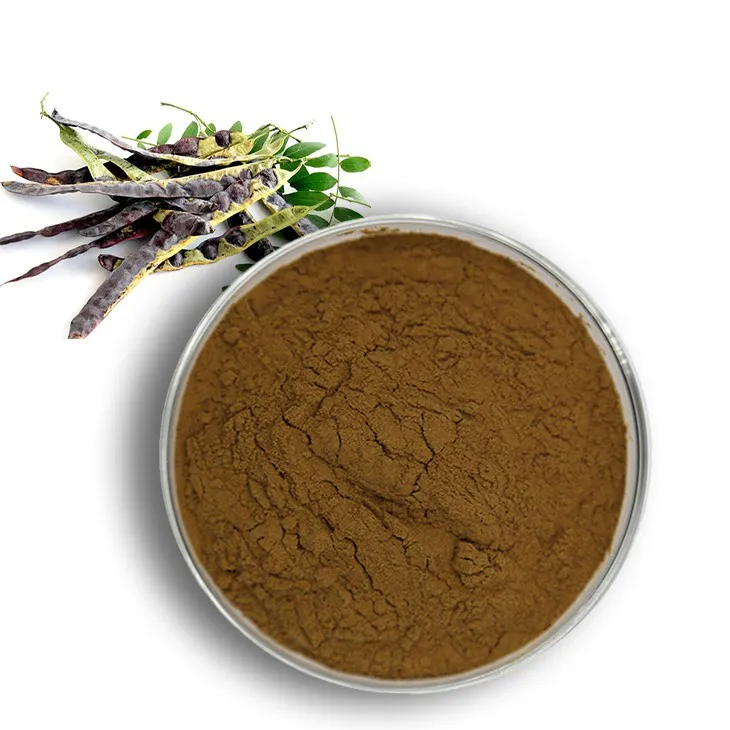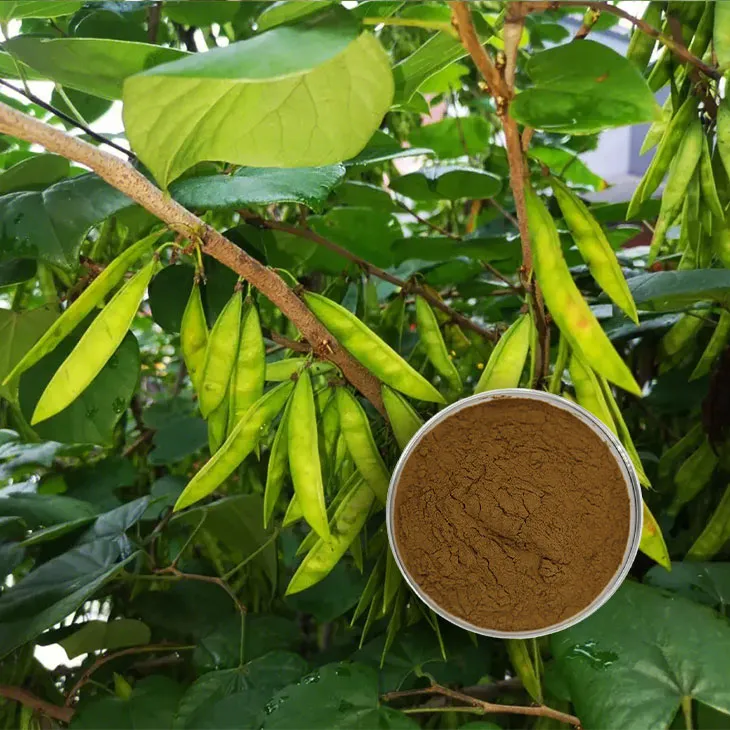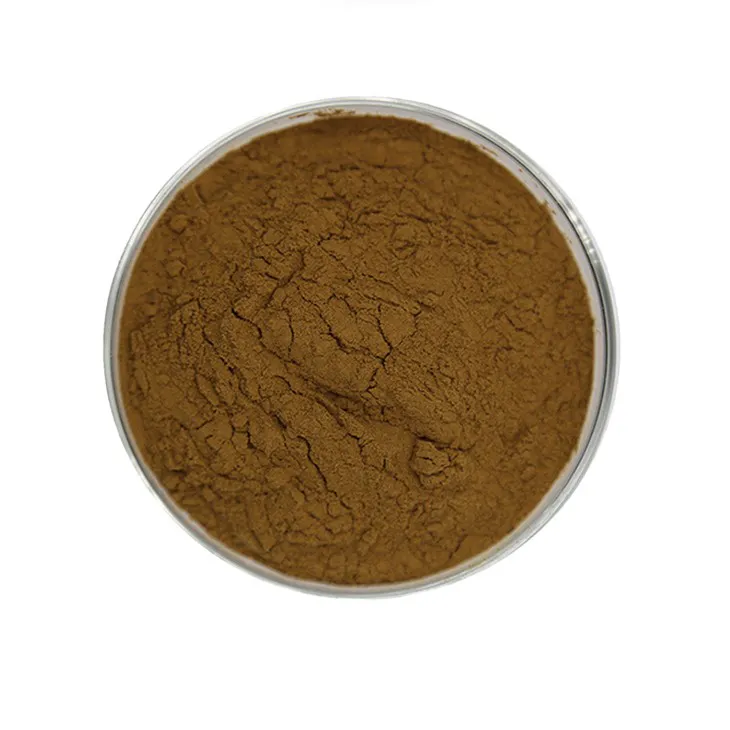- 0086-571-85302990
- sales@greenskybio.com
The Amazing Benefits of Organic Saponin Extracts
2024-11-13

Introduction
Organic Saponin Extracts have emerged as a highly valuable natural resource with a wide range of applications. Their significance has been growing steadily in recent years, attracting the attention of researchers, consumers, and industries alike. These extracts are derived from various plant sources and possess unique chemical properties that contribute to their multiple benefits.

Health Benefits
Antioxidant Properties
One of the most remarkable features of organic Saponin Extracts in the context of health is their antioxidant activity. Antioxidants play a crucial role in the human body by neutralizing free radicals. Free radicals are highly reactive molecules that can cause damage to cells, proteins, and DNA. This damage is often associated with the development of various chronic diseases, including cancer, heart disease, and neurodegenerative disorders.
Organic Saponin Extracts contain compounds that can scavenge free radicals, thus reducing oxidative stress. For example, some saponins found in ginseng have been shown to possess antioxidant properties. These saponins can interact with free radicals and prevent them from causing harm to the body's cells. This antioxidant effect may also contribute to anti - aging benefits, as oxidative stress is one of the main factors involved in the aging process.
Anti - Inflammatory Properties
Another important aspect of organic saponin extracts is their anti - inflammatory potential. Inflammation is a natural response of the body to injury or infection. However, chronic inflammation can be a major contributor to the development of many diseases, such as arthritis, diabetes, and certain types of cancer.
Studies have demonstrated that saponin extracts can modulate the body's inflammatory response. They can inhibit the production of inflammatory mediators, such as cytokines and prostaglandins. For instance, saponins from plants like fenugreek have been found to have anti - inflammatory effects. By reducing inflammation, these extracts may help in the prevention and management of chronic diseases.
Potential in Chronic Disease Prevention
The antioxidant and anti - inflammatory properties of organic saponin extracts make them promising candidates for chronic disease prevention. In the case of heart disease, the reduction of oxidative stress and inflammation can help protect the blood vessels from damage. This may prevent the formation of atherosclerotic plaques, which are a major risk factor for heart attacks and strokes.
Regarding cancer prevention, the antioxidant activity of saponins can prevent DNA damage that may lead to the development of cancer cells. Additionally, their anti - inflammatory effects may inhibit the growth and spread of existing cancer cells. However, more research is needed to fully understand the mechanisms involved and to determine the optimal dosage and form of saponin extracts for cancer prevention.

Beauty Benefits
Skin Hydration
When it comes to beauty, organic saponin extracts offer significant benefits for the skin, particularly in terms of skin hydration. The skin is the body's largest organ, and maintaining proper hydration is essential for its health and appearance.
Saponins can form a thin film on the skin's surface, which helps to prevent water loss. This film - forming property is similar to that of some synthetic moisturizers. For example, saponin extracts from plants like yucca can improve the skin's moisture - retaining ability. By keeping the skin hydrated, these extracts can make the skin look smoother, softer, and more youthful.
Hair Quality Improvement
Organic saponin extracts also have a positive impact on hair quality. The hair shaft is made up of a protein called keratin, and saponins can interact with keratin to improve the strength and elasticity of the hair.
Some saponin - containing plants, such as soapwort, have been used traditionally for hair care. Saponin extracts from these plants can cleanse the hair without stripping it of its natural oils. They can also add shine and volume to the hair. Moreover, saponins may help in reducing hair breakage and split ends, resulting in healthier - looking hair.

Agricultural Benefits
Natural Pesticide
In the field of agriculture, organic saponin extracts can serve as a natural pesticide. Pesticides are essential for protecting crops from pests and diseases, but many synthetic pesticides have negative impacts on the environment and human health.
Saponins have insecticidal and fungicidal properties. They can disrupt the cell membranes of insects and fungi, leading to their death. For example, extracts from plants like neem, which are rich in saponins, have been used as natural pesticides for centuries. Using saponin - based pesticides can help reduce the use of synthetic pesticides, thus promoting sustainable farming.
Promoting Sustainable Farming
By acting as a natural pesticide, organic saponin extracts contribute to sustainable farming in multiple ways. Firstly, they are less harmful to non - target organisms, such as beneficial insects and soil microorganisms. This helps to maintain the ecological balance in the agricultural ecosystem.
Secondly, saponin extracts are biodegradable, which means they break down more easily in the environment compared to synthetic pesticides. This reduces the risk of pesticide residues in the soil, water, and food. Additionally, the use of natural pesticides can also enhance the quality of agricultural products, as consumers are increasingly demanding pesticide - free or low - pesticide - use products.

Conclusion
Organic saponin extracts offer a plethora of benefits in health, beauty, and agriculture. Their antioxidant and anti - inflammatory properties make them valuable for health promotion and chronic disease prevention. In the beauty realm, they improve skin hydration and hair quality. In agriculture, they act as natural pesticides and promote sustainable farming.
However, more research is still needed to fully explore the potential of these extracts. This includes further studies on their mechanisms of action, optimal dosages, and long - term effects. With continued research and development, organic saponin extracts have the potential to play an even more significant role in various fields in the future.
FAQ:
What are the antioxidant properties of organic saponin extracts?
Organic saponin extracts have antioxidant properties which means they can help neutralize free radicals in the body. Free radicals are unstable molecules that can cause damage to cells, and antioxidants like saponin extracts can prevent or slow this damage. They do this by donating an electron to the free radical, thereby making it more stable and less likely to cause harm.
How do organic saponin extracts act as a natural pesticide?
Organic saponin extracts can act as a natural pesticide in agriculture. They can disrupt the cell membranes of pests, leading to leakage of cell contents and ultimately the death of the pests. This is a natural and environmentally friendly way to protect crops without the use of synthetic pesticides.
Can organic saponin extracts really improve hair quality?
Yes, they can. Organic saponin extracts may improve hair quality. They can help to strengthen the hair shaft, reduce breakage, and add shine. They might also have a positive effect on the scalp health, for example, by reducing inflammation which can contribute to healthier hair growth.
What makes organic saponin extracts beneficial for skin hydration?
Organic saponin extracts can enhance skin hydration. They can form a thin film on the skin surface which helps to prevent water loss from the skin. This film - forming property keeps the skin moisturized and can give it a smoother and more supple appearance.
Are there any side effects of using products with organic saponin extracts?
Generally, when used as directed, products with organic saponin extracts are considered safe. However, some people may be allergic to saponin extracts. It is always advisable to do a patch test before using a new product containing saponin extracts, especially for those with sensitive skin.
Related literature
- The Role of Organic Saponin Extracts in Modern Health Sciences"
- "Organic Saponin Extracts: A Promising Ingredient in Beauty and Skincare"
- "Saponin Extracts in Sustainable Agriculture: An Overview"
- ▶ Hesperidin
- ▶ citrus bioflavonoids
- ▶ plant extract
- ▶ lycopene
- ▶ Diosmin
- ▶ Grape seed extract
- ▶ Sea buckthorn Juice Powder
- ▶ Beetroot powder
- ▶ Hops Extract
- ▶ Artichoke Extract
- ▶ Reishi mushroom extract
- ▶ Astaxanthin
- ▶ Green Tea Extract
- ▶ Curcumin Extract
- ▶ Horse Chestnut Extract
- ▶ Other Problems
- ▶ Boswellia Serrata Extract
- ▶ Resveratrol Extract
- ▶ Marigold Extract
- ▶ Grape Leaf Extract
- ▶ blog3
- ▶ blog4
- ▶ blog5
-
Organic Tongkat Ali extract powder factory.
2024-11-13
-
How to make powder with ashwagandha extract.
2024-11-13
-
Rosehip extract manufacturers from China.
2024-11-13
-
The best cat's claw extract in nature.
2024-11-13
-
Chinese Dandelion Leaf Extract Suppliers.
2024-11-13
-
Mangosteen extract powder
2024-11-13
-
Ginseng Root Extract
2024-11-13
-
Lotus leaf extract
2024-11-13
-
Cocoa Extract
2024-11-13
-
Yellow Pine Extract
2024-11-13
-
Panax Ginseng Leaf Extract
2024-11-13
-
Peppermint Extract Powder
2024-11-13
-
Moringa powder
2024-11-13
-
Mulberry leaf Extract
2024-11-13
-
Stevia Extract
2024-11-13





















